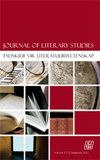颠覆性的诗句:恩德贝勒音乐家如何反击国家对古库拉洪迪种族灭绝的宣传
IF 0.1
4区 文学
0 LITERARY THEORY & CRITICISM
引用次数: 2
摘要
本文认为,虽然在一些艺术家的帮助下,国家成功地将Gukurahundi描述为对武装叛乱的镇压,但恩德贝勒音乐家也成功地利用颠覆性的隐喻和类比将大屠杀描述为种族灭绝。这表明恩德贝勒的音乐家是种族灭绝框架最早的公共赞助者之一。在框架理论中,隐喻是重要的框架手段之一;因此,本文是一个基于案例的比较研究的隐喻框架和反框架的选择歌曲。它使用了Lovemore Majayivana (Inhlanzi Yesiziba和U Tshaka)和Ebony Sheik (isavunguu -zane)的歌曲,但也触及了其他艺术家(如Thomas Mapfumo和Patrick Mukwamba)提供的更广泛的背景和更深刻的见解。本文章由计算机程序翻译,如有差异,请以英文原文为准。
Subversive Verses: How Ndebele Musicians Counter-Framed the State Propaganda on The Gukurahundi Genocide
Summary This article argues that while the state succeeded in framing Gukurahundi as suppression of armed rebellion with the help of some artists, Ndebele musicians also successfully counter-framed the carnage as genocide using subversive metaphors and analogies. It demonstrates that Ndebele musicians were among the earliest public sponsors of the genocide frame. In framing theory, metaphor is one of the key framing devices; as such, this article is a case-based comparative examination of metaphorical framing and counter-framing of selected songs. It uses songs by Lovemore Majayivana (Inhlanzi Yesiziba and U Tshaka) and Ebony Sheik (Isavungu-zane) but also touches on the broader context and deeper insights provided by other artists such as Thomas Mapfumo and Patrick Mukwamba.
求助全文
通过发布文献求助,成功后即可免费获取论文全文。
去求助
来源期刊

Journal of Literary Studies
Multiple-
CiteScore
0.50
自引率
0.00%
发文量
0
期刊介绍:
The Journal of Literary Studies publishes and globally disseminates original and cutting-edge research informed by Literary and Cultural Theory. The Journal is an independent quarterly publication owned and published by the South African Literary Society in partnership with Unisa Press and Taylor & Francis. It is housed and produced in the division Theory of Literature at the University of South Africa and is accredited and subsidised by the South African Department of Higher Education and Training. The aim of the journal is to publish articles and full-length review essays informed by Literary Theory in the General Literary Theory subject area and mostly covering Formalism, New Criticism, Semiotics, Structuralism, Marxism, Poststructuralism, Psychoanalysis, Gender studies, New Historicism, Ecocriticism, Animal Studies, Reception Theory, Comparative Literature, Narrative Theory, Drama Theory, Poetry Theory, and Biography and Autobiography.
 求助内容:
求助内容: 应助结果提醒方式:
应助结果提醒方式:


